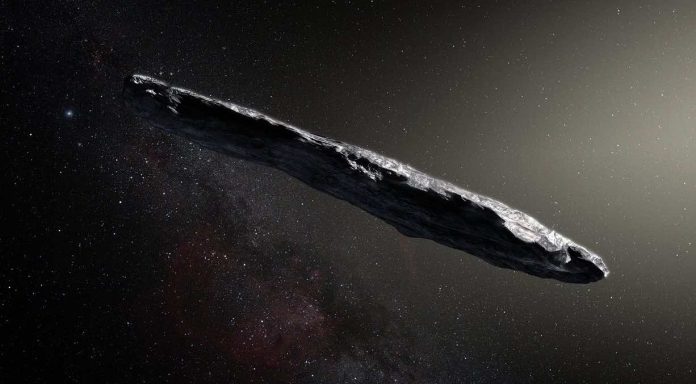Astromer and theoretical physicist Avi Loeb, chairman of Harvard’s Department of Astronomy, says extraterrestrial alien technology visited Earth back in 2017 – and there is going to be more of it coming our way in the future.
According to a statement by Loeb’s publisher HMH Books received by the Boston Globe, Loeb “showed it was not an asteroid; it was moving too fast along a strange orbit, and left no trail of gas or debris in its wake.”
To Loeb, it’s compelling evidence that an advanced alien civilization came by for a visit. It’s a striking theory, but one that puts him at odds with the vast majority of SETI researchers, who hold that we have not yet found compelling proof of life beyond the Earth.
But to be fair, before 2017 we had also never found anything like ‘Oumuamua. It’s the first interstellar object to have ever been directly observed, which has made it the subject of extensive speculation since it was first spotted by astronomers at the Haleakalā Observatory, Hawaii, on October 19, 2017.
The cigar-shaped object entered the solar system tumbling at a highly unusual orbit — and at a breakneck pace — seemingly defying the gravitational pull of the Sun. That finding left astronomers frazzled: was it a comet or an asteroid? And why was it emitting gas?
Loeb has been one of the most prominent advocates of the theory that the object was an alien probe. In 2018, Loeb and postdoctoral researcher Shmuel Bialy published an article in the journal The Astrophysical Journal Letters, in which the pair first examined the possibility.
In the article, Loeb and Bialy argued that “one possibility is that ‘Oumuamua is a lightsail, floating in interstellar space as debris from advanced technological equipment” or that it’s “a fully operational probe sent intentionally to Earth vicinity by an alien civilization.”
Other astrophysicists were not impressed.
“Honestly, I think it’s a bit of wild speculation,” Canadian astronomer Robert Weryk, who himself discovered ‘Oumuamua in 2017, told the CBC in 2018. “We actually think that’s not true based on the data that we obtained.”
In 2019, an international team of researchers published a study on ‘Oumuamua in the journal Nature Astronomy, arguing that they found “no compelling evidence to favor an alien explanation,” and that “Oumuamua’s properties are consistent with a natural origin.”
They argued that while the object didn’t quite fall under the definition of either an asteroid or comet, small gas emissions from its surface could explain its unusual trajectory through the solar system, deviating from an expected path that took the Sun’s gravitational pull into account.
Despite the criticism, Loeb is steadfast in his belief that ‘Oumuamua could be a sign that we’re not alone in the universe.
“The data we gathered on ‘Oumuamua are incomplete,” he argued in a December essay for Scientific American.
“To learn more, we must continue to monitor the sky for similar objects,” he wrote. “The realization that we are not alone will have dramatic implications for our goals on Earth and our aspirations for space.”








